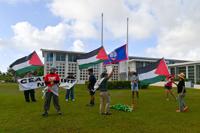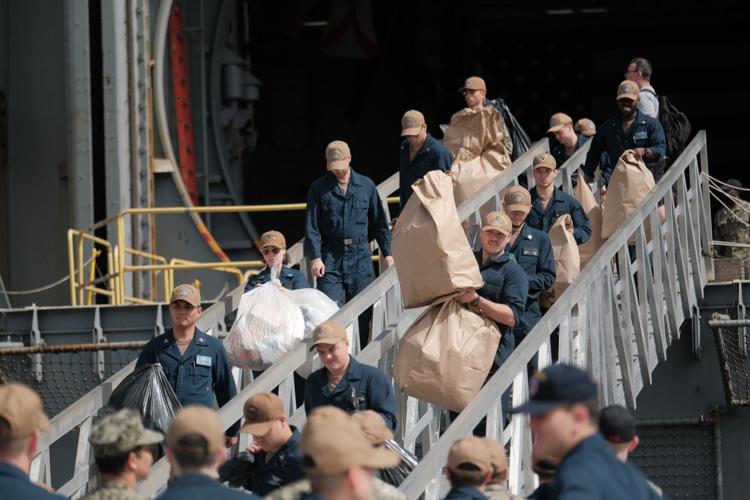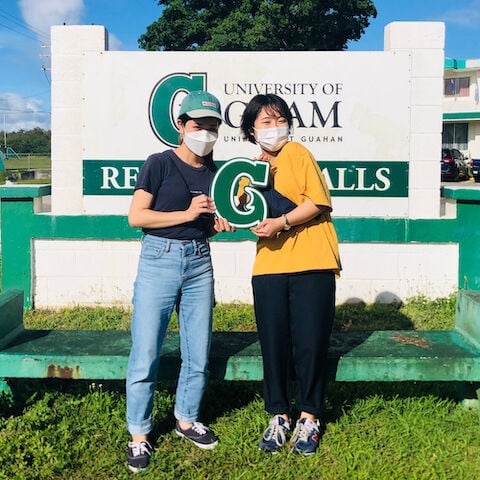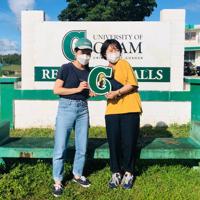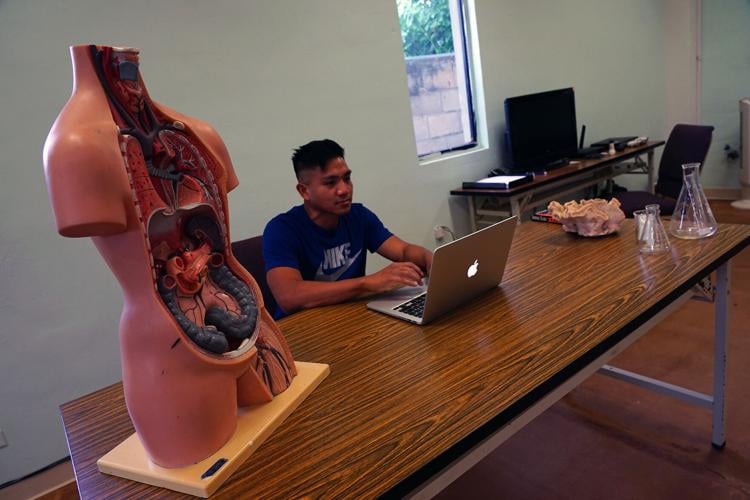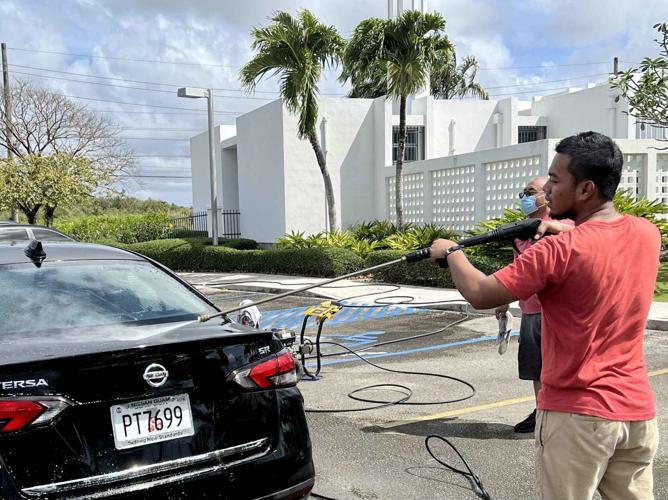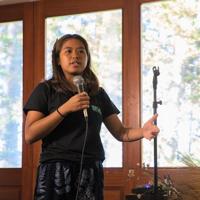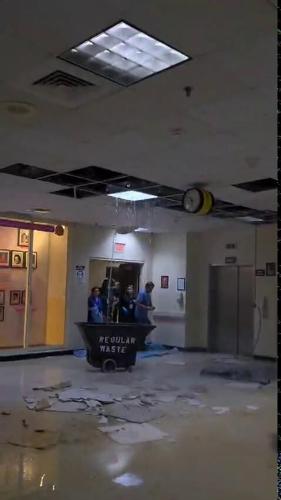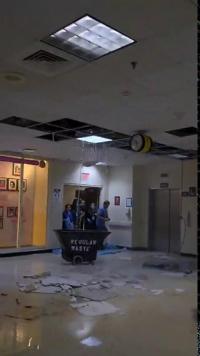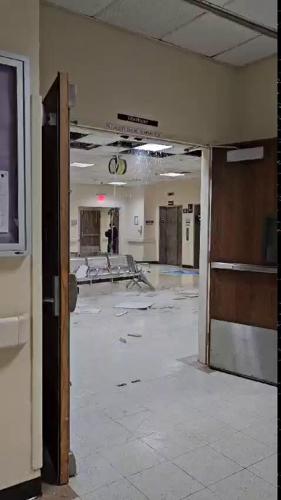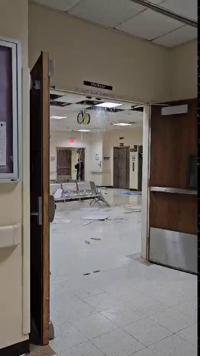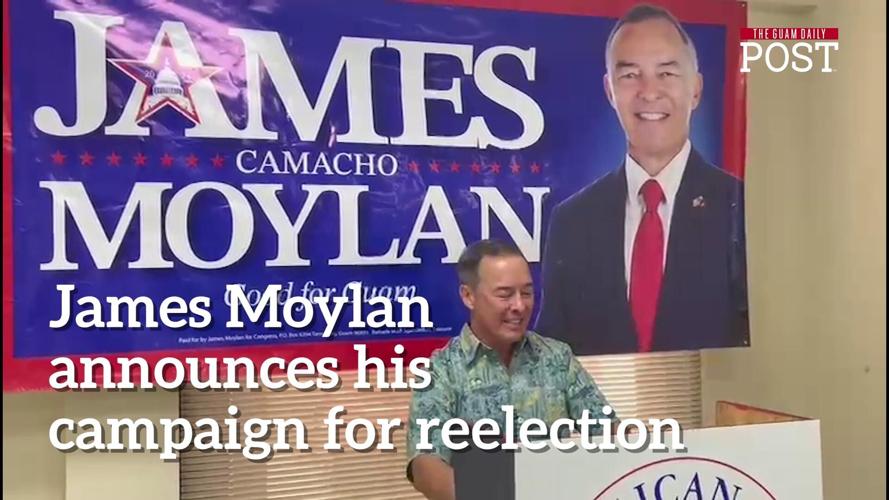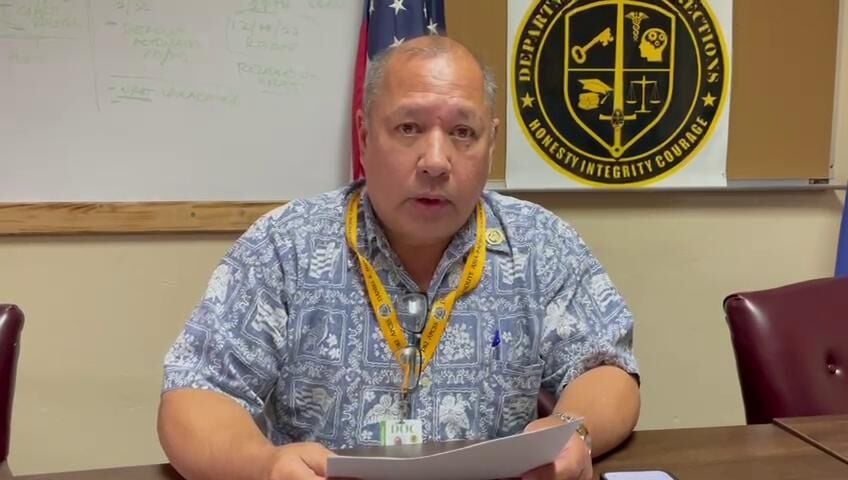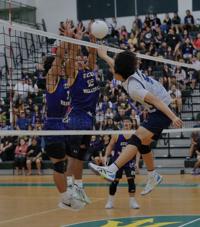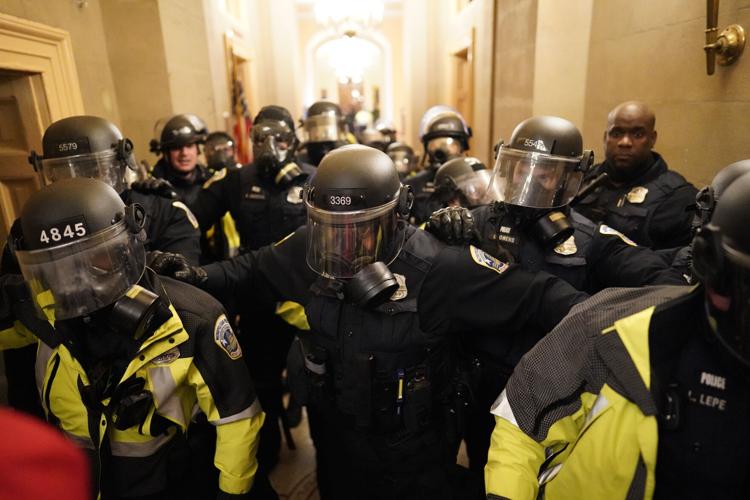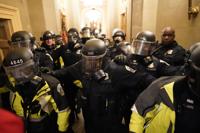BEIRUT - Students across the Middle East and globally are downing their pens, ditching class and joining in with pro-Palestinian protests in solidarity with a wave of campus protests that have swept across the United States in recent weeks.
From Kuwait to Lebanon, in Egypt and Ramallah, students have occupied central locations on campuses and on Monday and Tuesday waved placards calling for an end to the war in Gaza and divestment by their universities from companies that do business with Israel.
Similar protests have taken place at Sorbonne University in Paris and elsewhere, including Italy, Britain, Canada and Australia, as the global student demographic piles pressure on administrators and governments almost seven months into the war. Some of those protesting said they were directly inspired by U.S. students.
‘Felt ashamed’
“Palestine wasn’t initially their thing, but now they are doing more than we are, and (we) felt ashamed and that we should do more,” Ali Tayyar, a student organizer at Lebanon’s American University of Beirut, said at a protest Tuesday. “We needed to at least show some support for our friends in the U.S.”
U.S. colleges have seen protests since the Oct. 7 attack on Israel, led by Hamas, and the start of the Israel-Gaza war. But the unrest escalated dramatically in recent weeks after police arrested pro-Palestinian demonstrators at an encampment at Columbia University, sparking a wave of further campsites at other colleges and more crackdowns and arrests.
Israeli officials have condemned the protests as antisemitic, with Prime Minister Benjamin Netanyahu issuing a statement last week that called them “horrific” and reminiscent of Nazi Germany.
At the American University of Beirut protest, however, many said they were horrified by the crackdown on the U.S. protests. “We condemn the violence that happened at these universities because these protesters were peacefully demonstrating,” said student Tayla Katoura.
Stood in the rain
Roughly 150 protesters stood in the rain outside an administration building at the American University of Beirut, unfurling a giant Palestinian flag as they chanted “Students and workers against the occupation” as well as anti-Israel slogans.
Demonstrations took place under tight security measures. Most people without a valid faculty or student identification card were denied entry into campus. Those barred held another protest outside the university’s gates.
Protests took place in at least five universities in Lebanon on Tuesday, including at the nearby Lebanese American University, where business major student Batoul, 19, who spoke on the condition that her full name not be used for safety reasons, said that “as Arabs, it is our duty to be present here today.”
Did not agree
Batoul did not agree that the protests were inspired solely by U.S. students. “We inspired them, not the other way around. American students were inspired by us,” she said, noting what she called a shift in perception toward the Palestinian cause among American students.
The American University of Beirut’s president, Fadlo R. Khuri, said in an interview that the university has a long history of student protests and support for Arab nationalist and Palestinian causes.
“This was a case of the students mobilizing for a passionately held issue,” he said of the ongoing protests. “We strive to give the faculty, students and staff as much space as possible, and interfere as little as possible, unless there is violence, of which there was none.”
Khuri added that the college has “no plans to shut down the protests” but said that its endowments are managed by external fund managers, making matters of divestment challenging.
In Tunisia, the country’s student union called for a week-long strike of classes. Photos on the union’s Facebook page showed students marching in several cities to call for an end to the war. Protests also took place at the American University of Cairo in Egypt and at Birzeit University near Ramallah in the occupied West Bank.
Was not a move to thank students
The Birzeit Students Union said its protest was a move to thank students at universities in the United States for their support. “We feel it is a duty from our side to thank them, we appreciate their support, and we feel proud of them,” said Jamal Nakhleh, a student coordinator at Birzeit University.
At a solidarity rally at Kuwait University on Monday, one placard read, “From Kuwait University students to Columbia University students: ‘we stand with you.’”
Fawaz Gerges, an international relations professor at the London School of Economics and Political Science, said that the spread of student protests showed that young people around the world were “fed up by the continuing bloodletting in Gaza and the failure of Western governing elite to stop the war.”
“Student protests should be seen as another important layer of popular dissatisfaction and anger with Western governments and their Arab counterparts,” Gerges said. But the protests in the Middle East also highlighted a fine line Arab governments have to walk, he added.
“Although Arab regimes pay lip service to the suffering of the Palestinians in Gaza and the brutality of the Israeli military onslaught, they have cracked down hard on social protests in support of the Palestinians,” Gerges said. “Arab regimes are also terrified of any form of social protests lest they turn against the authoritarian structure at home. ”
On Monday, French police removed dozens of students from an antiwar encampment at Sorbonne University. Similar protests took place last week at the University of Oxford in Britain, Sydney University in Australia and Sciences Po, another university in Paris.
Little sign that movement is abating
There is little sign that the U.S. college protest movement is abating. Non-student protests, too, have made headlines in the United States in recent weeks, with protests taking place outside pre-election political events and halting traffic on bridges and major thoroughfares in San Francisco and New York. In Chicago and Seattle, protesters blocked the entrance to international airports, while journalists in D.C. walked through protesters outside Saturday’s White House Correspondents’ Association dinner.
As of Tuesday, more than 1,200 people have been arrested on campuses across the United States, according to a count kept by The Washington Post. Student groups at Columbia said they had taken over Hamilton Hall, a building near the campus’s South Lawn, and would occupy it until their demands were met.
Kuwait University faculty member Noor Alawadhi told the university solidarity rally that she was a graduate of Columbia University. “I am a product of the American higher education system, a system that is embedded in equality for all and free speech,” she said.
Alawadhi told The Post that although protests had occurred since Oct. 7 against the Gaza war, this time, they were also an act of thanks, “to send our deepest gratitude and support for the Western colleagues for speaking out and joining our voices.”


